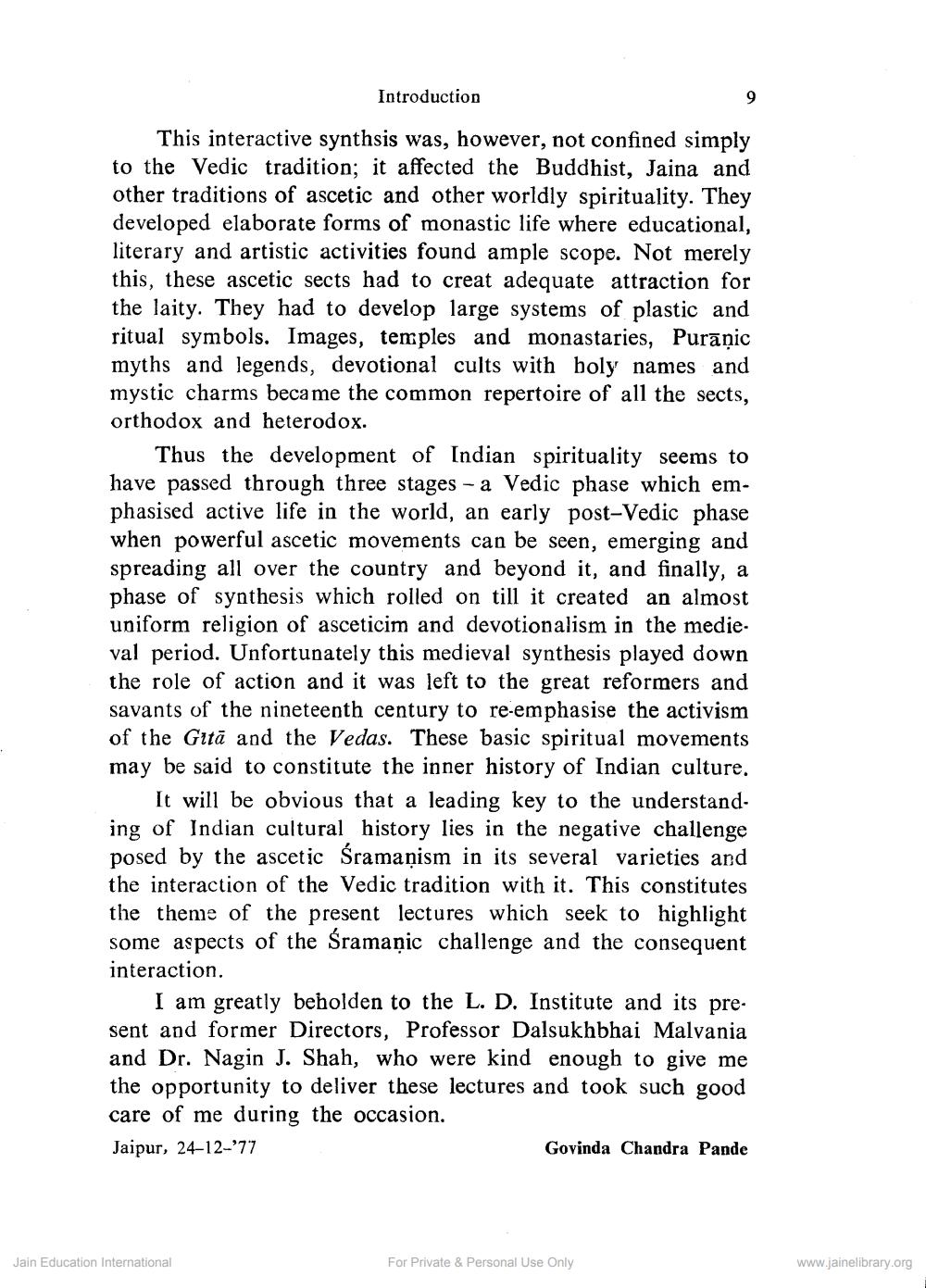________________
Introduction
This interactive synthsis was, however, not confined simply to the Vedic tradition; it affected the Buddhist, Jaina and other traditions of ascetic and other worldly spirituality. They developed elaborate forms of monastic life where educational, literary and artistic activities found ample scope. Not merely this, these ascetic sects had to creat adequate attraction for the laity. They had to develop large systems of plastic and ritual symbols. Images, temples and monastaries, Purāņic myths and legends, devotional cults with boly names and mystic charms became the common repertoire of all the sects, orthodox and heterodox.
Thus the development of Indian spirituality seems to have passed through three stages - a Vedic phase which emphasised active life in the world, an early post-Vedic phase when powerful ascetic movements can be seen, emerging and spreading all over the country and beyond it, and finally, a phase of synthesis which rolled on till it created an almost uniform religion of asceticim and devotionalism in the medieval period. Unfortunately this medieval synthesis played down the role of action and it was left to the great reformers and savants of the nineteenth century to re-emphasise the activism of the Gitā and the Vedas. These basic spiritual movements may be said to constitute the inner history of Indian culture.
It will be obvious that a leading key to the understanding of Indian cultural history lies in the negative challenge posed by the ascetic Sramanism in its several varieties and the interaction of the Vedic tradition with it. This constitutes the theme of the present lectures which seek to highlight some aspects of the Śramanic challenge and the consequent interaction.
I am greatly beholden to the L. D. Institute and its present and former Directors, Professor Dalsukhbhai Malvania and Dr. Nagin J. Shah, who were kind enough to give me the opportunity to deliver these lectures and took such good care of me during the occasion. Jaipur, 24-12-'77
Govinda Chandra Pande
Jain Education International
For Private & Personal Use Only
www.jainelibrary.org




